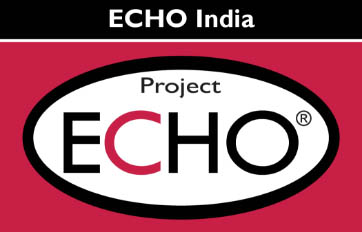Water is more than a resource–it is a fundamental human right. Yet, millions across the country lack access to clean water, sanitation, and hygiene (WASH). According to the World Bank, India is home to 18 percent of the world’s population but has only 4 percent of its water resources [1]. Over 600 million individuals face high-to-extreme water stress, and about 200,000 face severe health risks due to lack of clean water. [2]
Over the years, the Indian government has made significant strides in addressing WASH challenges through flagship initiatives like Jal Jeevan Mission, Swachh Bharat Abhiyan, and the National Rural Drinking Water Program. These programs have successfully expanded access to clean water, improved sanitation coverage, and driven behavioral change in communities across the country.
However, challenges still persist. Infrastructure gaps, water contamination, unsafe sanitation facilities, and inefficient sewage systems, coupled with groundwater depletion, rising pollution levels, rapid urbanization, and climate change, continue to hinder universal access.
UNICEF reports that close to 54 percent of rural Indian women, as well as some adolescent girls, spend an estimated 35 minutes fetching water every day. Drought-affected states witness increased dropout rates across schools. Water-borne illnesses, such as cholera, dysentery, and typhoid, continue to affect many, especially those belonging to underserved areas. [3]
As we observe World Water Day, it is crucial to look beyond mere access and focus on long-term, sustainable solutions. The need of the hour is to strengthen water security and management while encouraging community-led water conservation efforts and expanding sanitation infrastructure to enhance waste management. Driving awareness and behavioural change is equally crucial, such as integrating hygiene education into school curriculums to instill lifelong habits. Similarly, mobile-based WASH awareness programs in regional languages can make knowledge more accessible across diverse communities.
Capacity-building programs also play an essential role in ensuring long-term impact. Initiatives tailored for frontline workers and community health workers can enable them to act as hygiene champions, promote awareness about safe WASH practices, and reduce health risks associated with contaminated and unsafe water.
Strengthening Local Expertise for Sustainable Water Management
By leveraging technology and collaborative learning, ECHO India is supporting capacity-building efforts across India’s Water, Sanitation, and Hygiene (WASH) sector. The Department of Drinking Water and Sanitation, Government of India, embarked on a visionary journey to revolutionize water programs through a dynamic partnership with ECHO India.
In 2023, this led to the establishment of the JJM Digital Academy, a transformative learning platform. It aims to equip frontline professionals–from administrators and engineers to panchayat functionaries and sanitation workers–with the essential knowledge and skills for effective program implementation. Utilizing the ECHO Model, the academy ensures comprehensive capacity-building. Beyond immediate training, the JJM Academy serves as a repository of knowledge and resources, guaranteeing access to valuable insights for future learners. Key Resource Centres (KRCs) and Implementing Support Agencies (ISAs) play crucial roles in knowledge dissemination, enriching the learning experience. This involves multiple government agencies and organizations that contribute to developing a comprehensive water program curriculum.
ECHO India also supports the INREM Foundation in Water Quality Management-focused programs, cultivating a cadre of ‘Water Quality Champions’ equipped with the knowledge and skills to drive change at the grassroots level. Over the years, these champions have trained 12,500+ frontline workers and reached 5,000 villages, advancing efforts to enhance access to clean and safe water in over 6,00,000 rural communities. To strengthen local expertise in water supply management and ensure the long-term sustainability of WASH programs, collaborative initiatives with Water for People in Bihar and SPM Niwas (Syama Prasad Mookerjee National Institute of Water and Sanitation) have focused on building the capacity of local stakeholders. These efforts empower communities to manage water systems efficiently, improving access to clean water and sanitation in rural areas.
A partnership with the Aga Khan Rural Support Programme (AKRSPI) has further contributed to water security, providing training on water management and maintenance to ensure that local communities can sustain and oversee their own water systems effectively.
Access to clean water, sanitation, and hygiene is a fundamental human right, not a privilege. Strengthening WASH systems in India requires collaboration among governments, NGOs, frontline workers, and local communities. This World Water Day, let us unite to promote sustainable solutions and ensure that everyone, no matter where they live, has access to clean water and a healthier future.
Sources:
[1] World Bank
[2] UNICEF
[3] Niti Ayog, 2018-19 Annual Report
